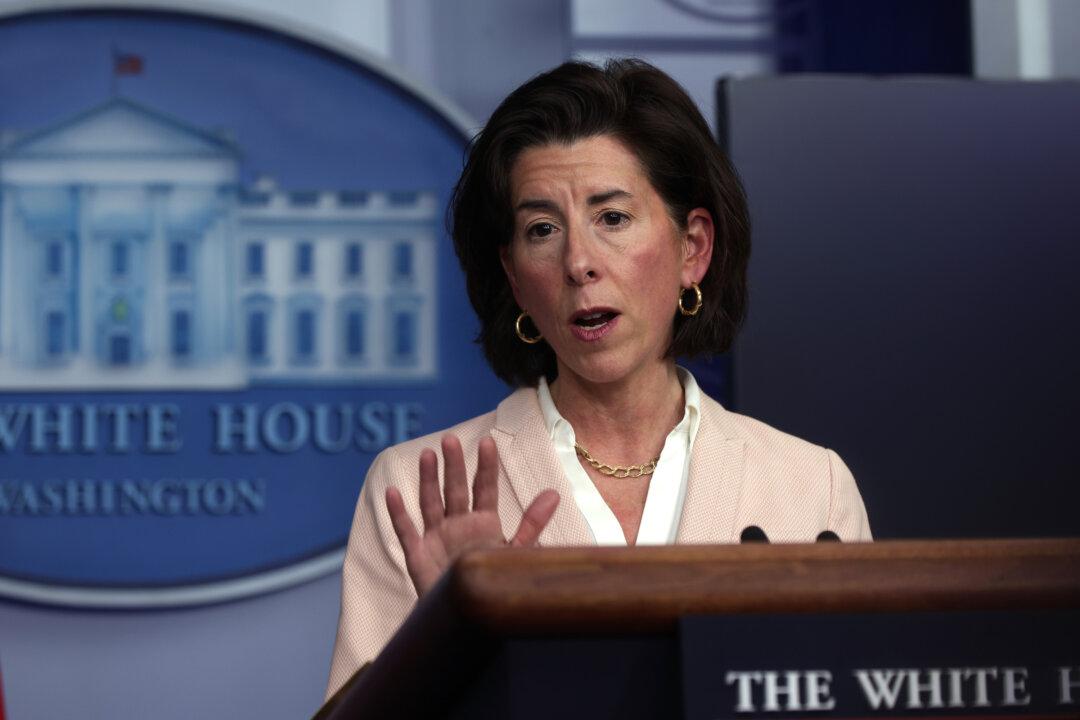Secretary of Commerce Gina Raimondo said on April 7 that the Trump administration’s tariffs on steel and aluminum saved American jobs.
“With respect to tariffs, there is a place for tariffs. The 232 tariffs on steel and aluminum have in fact helped save American jobs in the steel and aluminum industries,” Raimondo told reporters at the White House, marking a rare point of agreement with the policies of the prior administration.





